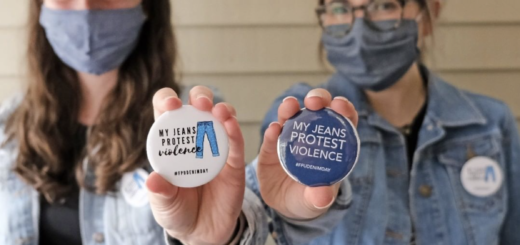Why US college students struggle following Covid-19 policies
by Adam DiLiddo
Across the nation, as some college students are breaking the very rules meant to protect them from Covid-19, psychologists point to teenage mental development as a key reason why.

(Photo: Sharp HealthCare)
Anna Song, an Associate Professor of Health Psychology at the University of California, Merced, explained the dilemma students face to The Washington Post. “The parts that are developing [for them] at that stage are the parts that help us make decisions, help us plan, help us control our impulses,” she said.
“And those are the things you really need right now in this pandemic.”
Song also noted that “brains continue to develop typically into a person’s mid-20s.” While the average student falls into this age group, she suggested that younger students may be lacking the mental maturity to make proper decisions, like following safety policies.
Similarly, Ben Locke – the senior director for Counseling & Psychological Services at Pennsylvania State University – says that teenage mental imbalance is to blame, according to CNN.
“During adolescence and into adulthood,” he said, “the brain region most sensitive to social rewards – the amygdala – develops at a much faster rate than the frontal cortex, the part of the brain responsible for rational, consequence-driven decision making.”
“That imbalance may drive them to make decisions others deem risky, like visiting friends or attending a party,” Locke said. This would explain the prevalence of such incidents, which – according to a The New York Times article – colleges are struggling to prevent countrywide.
From the article, Jason Chang – a doctoral student supervising dorm residents at Cornell University – says to have witnessed numerous policy violations within his first week back alone. “Constant insanity and madness.” He said on the student situation.
For other supervisors nationwide, such insanity and madness include social gatherings. From “unauthorized [partying]” to over-capacity hangouts, students are seemingly defying sanity – never mind health – to be together as the pandemic rages on.
Yet, this specific “madness” does have a simple explanation. According to Song, “students ages 18 to 21 are essentially wired to make social connections.” This searching for belonging has always had a profound stranglehold over students, and it will not stop because of a virus.
According to CNN, Hannah Schacter – an assistant professor and developmental psychologist at Wayne State University, says, “Peers are so essential that it’s no coincidence that we’re seeing these behaviors more and that they’re particularly peer-oriented.”
Considering this “essential” nature of student socialization and bonding, it is no wonder then that social gathering violations are taking place, especially when considering the social interaction universities have traditionally offered to past generations.
Therefore, one can only imagine the difficult position college students have throughout America. While facing the virus and the regulations to combat it, they are also facing a plethora of psychological incentives not to care about them.
As Scottie Andrew, CNN, wrote, “It’s easy to blame the clusters of cases solely on the students – it plays perfectly into the stereotype of teenage recklessness and vanity. But their risky decisions have more to do with their development and mental resilience than conscious rule-breaking.”

